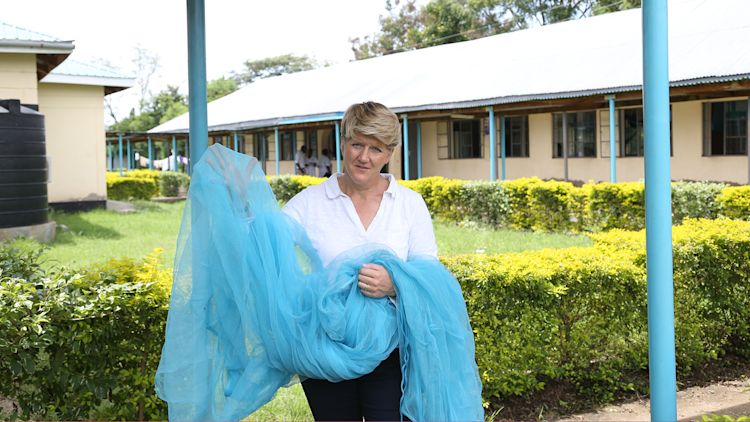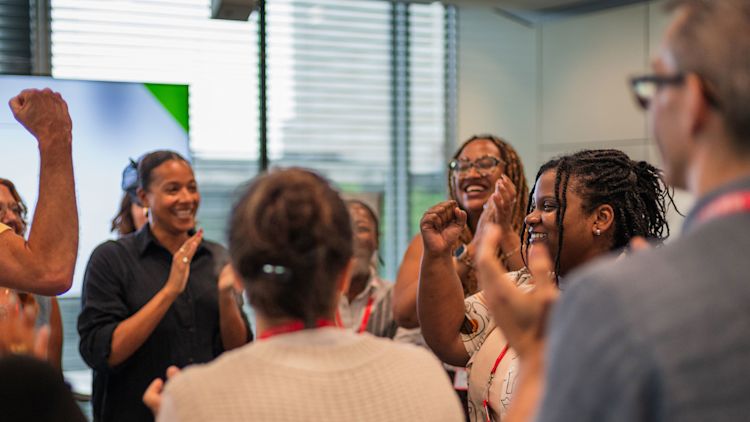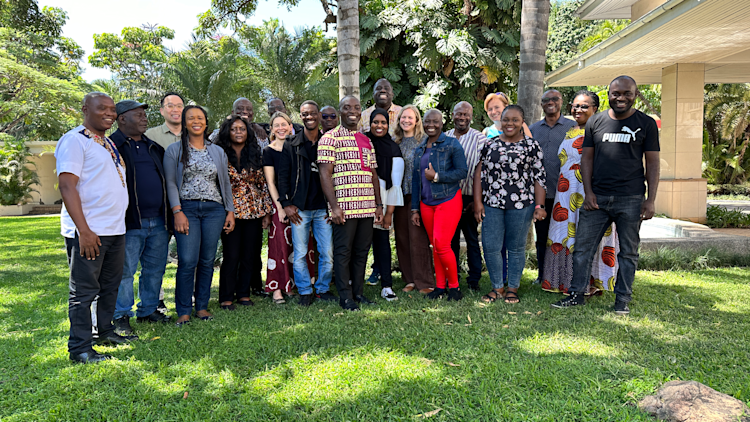
Today marks World Malaria Day and this year we are shining a light on the amazing work being done around world to tackle the disease.
Clare Balding recently visited Kenya to see Comic Relief funded work in action and found that while considerable progress is being made in the fight against the disease, there is still so much more that desperately needs to be done.
Read about Clare’s trip below.
The minuscule mosquito has proved to be perhaps the most deadly creature humans have ever faced.
Many of these fearsome foes carry malaria, a parasitic infection that has been wreaking havoc amongst the human race since antiquity. Millions have been killed by malaria, and even now, billions are at risk of catching it ever year.
That's quite a track record.
As I learnt on a recent visit to Kenya to see Sport Relief cash in action though, despite its horrible history, the battle against malaria is one that's being won.
Since the turn of the millennium, death rates from the disease have dropped by 60% worldwide. A large factor in this startling change is that between 2000 and 2015, the proportion of children sleeping under an insecticide-treated bed net in sub-Saharan Africa increased from less than 2% to almost 70%.
Put simply, putting bed nets across towns and villages works. Not only in stopping human infection, but also in reducing the numbers of infected mosquitoes in that area.
The scale of the success so far is astonishing, with 1.2 billion fewer malaria cases occurring globally between 2001 and 2015.
But this really is a job only half done.
While a child dying to the disease every 30 seconds (as was the case a decade or so ago) now being every 2 minutes is a considerable movement in the right direction, it is obviously still an unacceptable state of affairs for what is a wholly preventable disease.
Whilst in Kenya I met a mother and her son who are still at the mercy of the disease. Immaculate, 22, had been saving to buy a bed net to protect her two sons Nicholas, 3 and 18 month old Whicklyfe.
When she eventually had enough money she bought and put up the net but it was just too late. A few days later Nicholas was feverish and she feared the worst. Forced to leave her youngest son at home with her blind father-in-law, Immaculate made her way to Ahero hospital where I met her.
When the test result came back positive this young mother, who lost her own parents when she was young, became understandably upset. When she later contacted her father-in-law to check on her other son, he told her he too had come down with a fever.
In the space of one night, just days before they had the protection of a net, her two boys had both been bitten and infected. It was an almost unbearable story to hear, yet despite all the strides made to fight malaria in recent years it is still an all too common tale, especially in sub Saharan Africa.
As Nicholas lay on his shared bed in the maternity-cum-paediatric ward and waited for the drugs that would help him fight off the parasite now in his blood stream, it was hard not to be gripped by a sense of injustice. This young mother had done the right thing, by saving what little she had to be able to buy a net to protect her young family, but agonisingly she had missed out by a matter of days.
In a world where it can feel like success stories are all too rare, the battle against malaria really is something we can be proud of. But we owe it to parents like Immaculate to finish the job and give them the simple nets they need to not only protect their children, but also move us all one step closer to eradicating this age old scourge for good.


